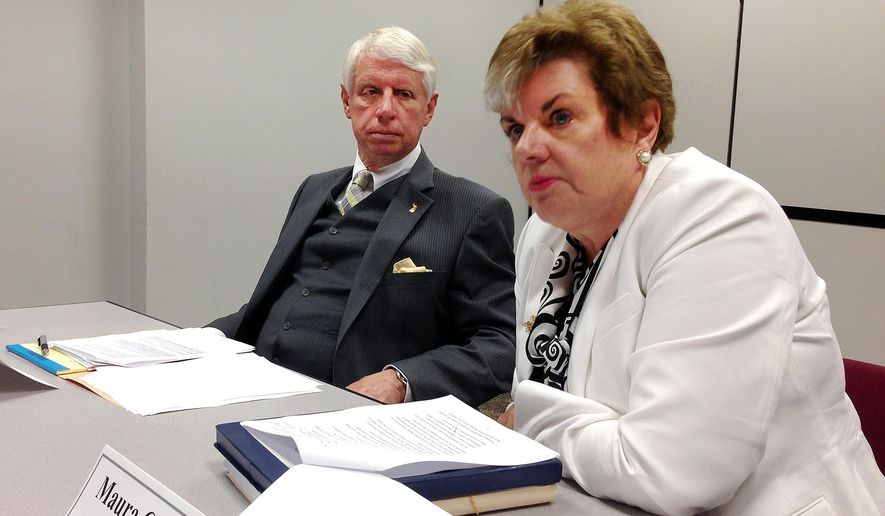DETROIT (AP) - A state agency is bypassing state attorneys and paying a private law firm $558 an hour in an aggressive effort to try to end court oversight of Michigan’s child welfare system.
The Michigan attorney general’s office, whose lawyers are on salary, typically represents state departments in legal actions big and small. It already is deeply involved in the long-running federal case to improve foster care, child welfare and other programs for kids.
But John Bursch was hired last year with a specific mission: to persuade a judge to end or greatly reshape an agreement between the Department of Human Services, known as DHS, and a New York group called Children’s Rights. He was hired by Maura Corrigan, who led DHS until the end of 2014.
No one questions Mr. Bursch’s skill. Wearing his trademark bowties, he argued eight cases at the U.S. Supreme Court while serving as Michigan’s solicitor general, the top appellate lawyer in state government, until returning to private practice in 2013.
But his services aren’t cheap at a time of tight budgets. His firm, Warner Norcross & Judd, is charging $558 an hour, according to DHS, and so far has been paid $183,823 for work through December. The contract has no ceiling.
One of Mr. Bursch’s key arguments: The state has made many improvements yet still is forced to spend too much money on attorneys who sued DHS as well as the court-appointed monitors who are marking the department’s progress in a 2011 agreement to fix child welfare programs.
“I absolutely defend it,” Ms. Corrigan said of hiring Mr. Bursch.
The attorney general’s office doesn’t have “quite the combination of skill sets that John has,” she told The Associated Press. “I don’t think they could do it with the degree of skill that John has brought to the litigation. … He’s just an exceptional lawyer.”
Mr. Bursch said he was willing to be interviewed but DHS asked him not to comment.
In December, he asked U.S. District Judge Nancy Edmunds to end oversight of the child welfare system or at least modify the agreement because 79 percent of goals have been met. Children’s Rights filed the lawsuit in 2006, alleging widespread weaknesses in how the state keeps an eye on thousands of kids in foster care and protective services, among other problems.
It led to a sweeping accord to hire more people and reduce the number of cases per worker. The pact also sets benchmarks in areas such as children’s health and foster-home licensing. The 2008 agreement was renegotiated in 2011 after Gov. Rick Snyder took office and put Ms. Corrigan in charge at DHS.
Monitors from New Jersey-based Public Catalyst track the progress while the case remains under the control of the judge.
Sara Bartosz, an attorney with Children’s Rights, said it would be “unconscionable” to change the case like the state has proposed until the “children of Michigan are safe.”
The state in January withdrew its formal request to end oversight as the judge encouraged the department to keep talking with Children’s Rights, DHS spokesman Bob Wheaton said.
“This alternative allows us to accomplish the same goal through negotiations,” he said.
Another report from the monitors is due in the weeks ahead.
“John has changed the dynamics,” said Ms. Corrigan, former chief justice of the Michigan Supreme Court.
The state said it has paid more than $10 million to the monitoring team and Children’s Rights. Millions more have been spent to comply with reporting requirements.
Mr. Bursch’s former employer, the attorney general’s office, has no problem with him working on the case.
“The option to use additional attorneys with special skills and experiences … belonged to Ms. Corrigan, as it does with all department directors,” spokeswoman Andrea Bitely said in an email.




Please read our comment policy before commenting.